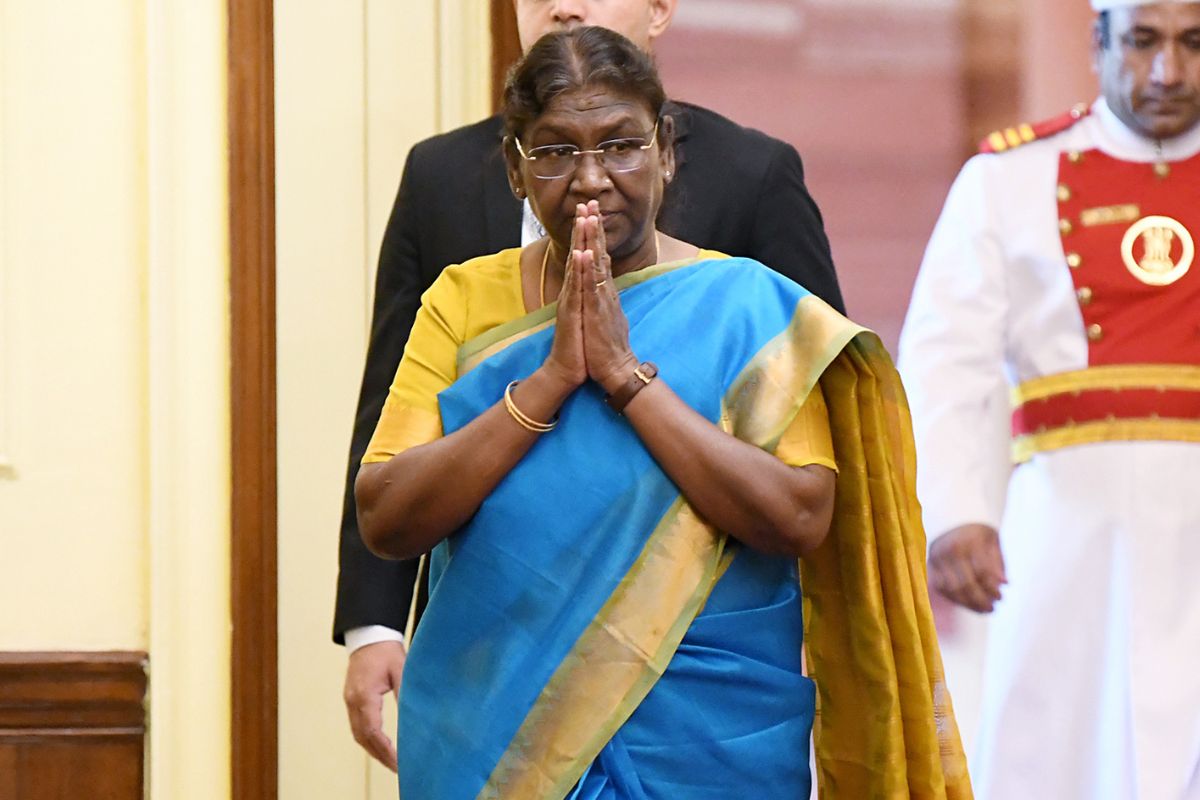a severe blow to the LDF Government in Kerala, the President of India has withheld assent to three Bills, which the state Governor Arif Mohammed Khan had referred to Rashtrapati Bhavan for consideration.
The Bills that the President denied the assent are: Kerala University Laws (Amendment) Bill seeking to divest the Governor of the power of the Chancellor of state universities, the Bill seeking to divest the Governor of the power of the Chancellor of state universities and d the University Law Amendment Bill 2021, focused on governance changes within the state’s technology university.
President Droupati Murmu, however, gave her assent to the Lokayukta Amendment Bill, 2022.
Kerala Raj Bhavan on the social media platform X (formerly Twitter) on Thursday said Governor Khan had sent seven Bills to the President for consideration, of which only the Lok Ayukta (Amendment) Bill received Rashtrapati Bhavan’s nod. “It is informed that the Hon’ble President of India has withheld assent to three Bills which Hon’ble Governor Shri Arif Mohammed Khan had referred to Rashtrapati Bhavan for consideration,” Raj Bhavan said in the post.
The President’s decision has dealt a severe blow to the state government’s s initiative to remove the Governor from the authority of universities in the state. The Students Federation of India (SFI), the students’ wing of the CPI-M was on the warpath against Governor Khan, accusing him of attempting to stack university syndicates with Sangh Parivar nominees.
The President earlier approved the Kerala Lokayukta Amendment Bill. The Kerala Assembly had on August 30, 2022, passed the Lokayukta (Amendment) Bill, which seeks to make the executive the appellate authority over recommendations and reports by the anti-corruption watchdog.
Governor Khan had, in November last year, reserved seven Bills, including the controversial University Amendment Bills and the Kerala Lok Ayukta Bill, for presidential assent
The president’s assent to the controversial Kerala Lokayukta (Amendment) Bill can be considered as a major political victory for the CPI-M-led LDF Government in the state. However, the denial of assent to the three University amendment Bills have diminished the colour of that political victory.
As per the Lokayukta amendment, if Lokayukta passes a verdict against the chief minister in a corruption case, the Assembly would be the competent authority to decide on it, not the Governor. The appellate authority for the ministers would be the chief minister, while for the members of the Assembly, it would be the Speaker.
The Congress-led UDF Opposition said the Presidential assent to the Lokayukta Bill indicates a compromise between the CPI-M and the Sangh Parivar as well as a brotherly relationship between the state and the central governments. Leader of Opposition in the state assembly V D Satheesan said that with the approval of the Bill by the president, the anti-corruption system in the state has been thrown into disarray.
Senior Congress leader Ramesh Chennithala said the amendment to the Lokayukta Act that makes the anti-corruption watchdog ineffective, would not stand legal scrutiny. He said the Congress would challenge the legislation in the Kerala High Court. He said the law ran against the judicial diktat that “no person could be a judge in his own cause.”












